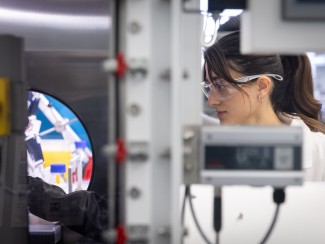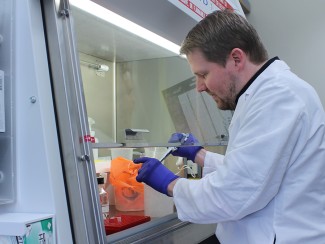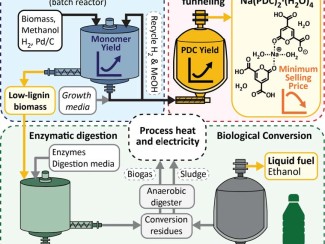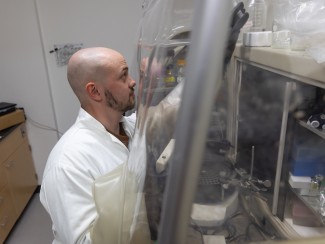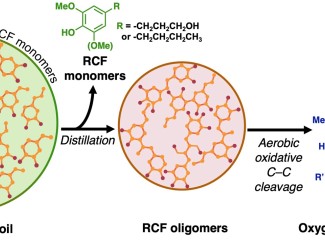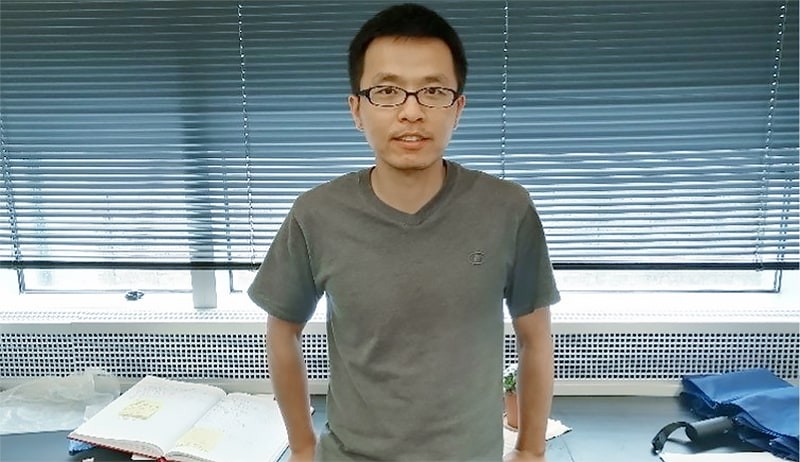
Our graduate students and postdoctoral researchers play an enormous role in the transition to a sustainable, resilient, and affordable energy future that is centered on social and economic equality. From lab experiments to field work to classrooms, these leaders of today and tomorrow are our catalysts for energy discovery.
In this series, we learn more about what inspired these talented researchers, what brought them to their field of study, and the questions that drive their work at the Wisconsin Energy Institute.
This week we spoke with Jun Feng, a postdoctoral researcher in Ophelia Venturelli’s research group at the University of Wisconsin–Madison. Jun is from Shaanxi, China and studied microbiology and metabolic engineering for his Ph.D. at Nankai University. He now researches microbial therapeutics and microbial design for biomanufacturing.
What brought you to UW–Madison and the Wisconsin Energy Institute?
This is a well-known institute in the research field of microbial synthesis. It is my honor to be here and work with these talented people.
What is one thing that surprised you about UW, Madison, or Wisconsin?
I was surprised that the motto of Wisconsin is not “winter is coming.” This is a joke! In all seriousness, I am surprised that many people I had learned about in textbooks or from textbooks actually work in the building around me.
Can you tell me about your research in a way that you would describe to friends or family?
I study the engineering of microorganisms for biomanufacturing. These engineered microorganisms can be used as a platform to produce biochemicals or biofuels from natural, renewable resources like switchgrass.
It is interesting to engineer little creatures such as microorganisms to do whatever you want.
Jun Feng
I also work on microbial therapeutics, which involves engineering microbes to achieve different things within the human body. Specifically, I am working on the engineering of gut bacteria, which can used as a live therapeutic drug or controlling node to treat human disease.
What do you hope to accomplish after your time at UW-Madison and the Wisconsin Energy Institute?
I am planning to find a job in academics or industry to continue my research in the field of microorganism engineering.
What is your favorite memory at the Wisconsin Energy Institute so far?
The supervisors are more like a friend, brother, or sister to us. This feeling is wonderful!
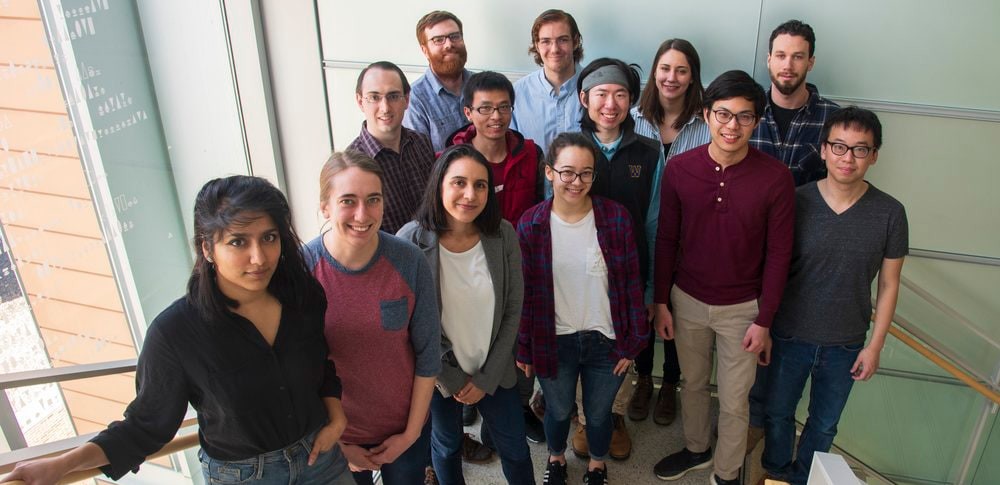
What has been the most difficult part of working as a researcher during the COVID-19 pandemic?
Due to the social distancing policy, I moved to another floor far from our lab. It was very inconvenient for me to do research. There was also a shortage of many chemicals and lab supplies, which disturbed my research plan.
On the other hand, what has been the most fun part of working as a researcher during the pandemic?
It is great that I can meet everyone from all over the world just from my office.

